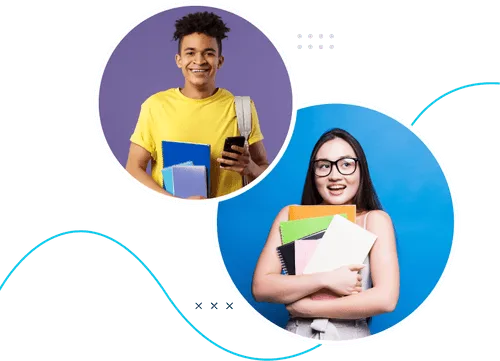Learning disability? ADHD? Executive functioning issues? On the Spectrum? Yes, the skilled teachers at Score Academy guide these students to master their academic subjects, learn coping strategies and compensatory skills, become better organized, and build self-confidence.
Score Academy performs its own assessment for each new student and then, coupled with any previous IEP’s or psycho-educational evaluations, develops an Individual Academic Plan to identify specific strategies for achieving important learning and social outcomes for each student. Our schools have successfully worked with hundreds of students with specialized needs. Our partnership with family members and clinicians is essential for success. Daily communication about what is working and what is not, especially when students are on medication, helps us ensure that the academic plan is moving in the right direction.
- Learning Disabilities/ADHD
- Autism Spectrum Disorder (ASD)
- Dyslexia & Other Reading Issues
Learning Disabilities/ADHD
Students with learning disabilities may experience some of these challenges:
- Have limited patience for the learning process
- Appear confused
- Read slowly and with less-than-full comprehension
- Misspell words
- See letters reversed or half-there
- Hear only part of a story or word
- Have difficulty with the writing process
- Struggle with short-term memory, or experience difficulty recalling a word from memory
- Have limited facility with numbers, calculation, and quantitative reasoning
- Process information slowly, needing "think time" to respond
Students diagnosed with ADHD or executive functioning issues may experience challenges like these:
- Be focused one day but not the next
- Forget to do homework or study
- Become distracted by background noise or visual stimulation
- Take more time to start and finish tasks
- Not complete tasks
- Lack the ability to plan ahead, and fail to complete tasks
- Struggle to simultaneously listen to a teacher’s lecture and take notes
- Ask the same questions over and over
- Be disorganized and not manage time effectively
- Talk out of turn, have trouble sitting still, or move around the room
- Struggle to follow instructions
- Have difficulty with note-taking
And, of course, some students may experience challenges described in both lists. Unfortunately, so many students with learning disabilities, ADHD, or executive functioning issues may lack self-confidence and feel lonely, rejected, isolated, shame, fear, or anger. But not at Score Academy!
To help students overcome these challenges, Score Academy’s sensitive teachers implement a variety of techniques in the classroom. They...
- Review previous lessons
- Start each session with an overview and end with a summary
- Emphasize key concepts
- Capitalize on a student’s strengths
- Use multi-sensory materials (visual, oral, tactile)
- Give both verbal and written directions
- Keep instructions simple
- Use more than one example
- Incorporate diagrams, maps, and other visual aids when teaching
- Create flashcards and flowcharts
- Create mental pictures
- Use mnemonic devices
- Use role-play techniques
- Create outlines with the student
- Regularly review material to reinforce learning
- Break lengthy presentations and assignments into shorter segments
- Work slowly to allow time for processing
- Speak slowly and clearly
- Repeat directions, ideas, and explanations
- Frequently ask questions to check for understanding
- Have the student “teach” the teacher
- Relate new concepts to a topic already learned
- Connect content to the student's real-life experiences
- Make sure every session is hands-on and highly interactive
- Combine direct teaching with guided practice
- Take short breaks when necessary
- Create a timeline for completing longer assignments
- Use the quietest classroom for distraction-free instruction
- Continually give positive reinforcement and encouragement
- Clearly define expectations and a student's responsibilities
Our founder, Judi Robinovitz, recognized first hand the value of these strategies when her son Jason was growing up. Diagnosed in elementary school with dyslexia and ADHD, Jason became a successful student because of the individualized support and instruction he received from Judi’s dedicated staff. Jason graduated from a top-tier law school and passed the Florida Bar Exam the first time; after practicing law for five years he joined the family as the Chief Operating Officer of all Score Academy! The strategies that worked best for Jason, and other students like him, remain with Score Academy today to ensure every student’s success.
Autism Spectrum Disorder (ASD)
Score Academy students with ASD learn in a safe, understanding, and individualized fashion. We provide small, highly structured settings perfect for implementing effective methods of instruction. We identify and use measurable goals for tracking progress in academic, personal, and social skills development.
Score Academy is a strong believer in experiential education; students often learn best when presented with information in environments where they will ultimately apply the information. For instance, students practice their math lessons with monetary exchanges, and learn about science by planting seeds. This helps students improve their skills by framing their knowledge in real-world terms.
Additional teaching strategies include:
- Minimizing distractions when presenting a task involving concentration
- Linking work to the student’s interests and fixations
- Building lessons around personal special-interest topics
- Creating and sticking to a regular daily schedule, visually accessible to the student
- Building in time for structured play
- Supporting the student in open-ended and group tasks
- Allowing some access to obsessive behavior as a reward for positive efforts
- Using a variety of presentation approaches: visual, physical guidance, peer modeling, etc.
- Recognizing that some behaviors may reflect anxiety (triggered by even minor changes to routine)
- Providing fewer choices with clear options to avoid overwhelming the student
- Avoiding sarcasm or idioms (A statement like “Put your thinking cap on” will leave an ASD student completely mystified.)
- Repeating instructions, checking understanding, and using short sentences
Dyslexia & Other Reading Issues
When a student struggles with reading, we complete a thorough language evaluation or use the assessments of other qualified professionals to create a pro-active plan that meets the student’s needs.
Our specialized teachers use a range of reading methodologies, including elements from Orton-Gillingham, Lindamood-Bell, Wilson, Barton, and SRA’s Corrective Reading Program. Our multisensory approach combines enthusiasm and encouragement with the entire language continuum: the alphabetic principle, phonology, morphology, semantics, syntax, encoding, decoding, higher level of comprehension, and writing.
Particular teaching strategies include:
- Using specialized reading programs that foster improvement
- Ensuring students have a quiet place to work
- Allowing students to listen to audio books as they read the text
- Doing written work on a computer
- Providing extra time to take tests and complete homework
- Encouraging the use of assistive technology to help students gain confidence

